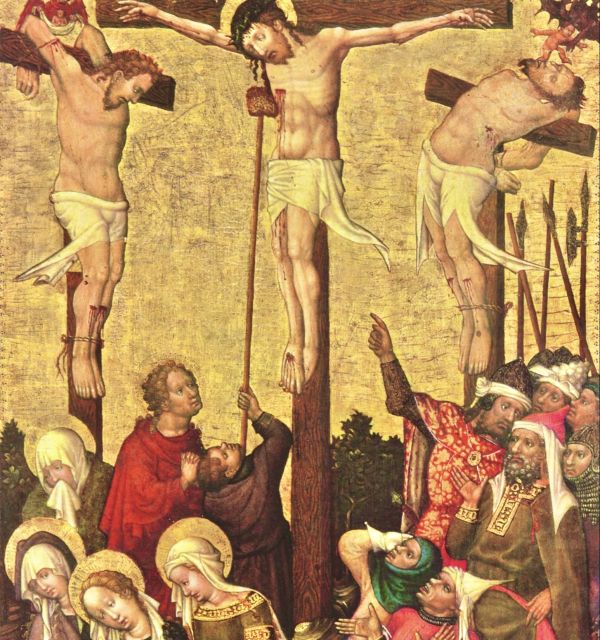The Gospel passage from Luke presents Christ's kingship on the cross, mocked and insulted, even by one of the two thieves crucified with him.
The other, however, humbly asks Jesus to remember him, and the Lord, in the exercise of his authentic kingship, assures him of Paradise.
Francis considered himself "the herald of the Great King".
When attacked by brigands who asked him who he was, he replied fearlessly: "I am the herald of the Great King; does that interest you?" (FF 346).
And when he had to sit at the sumptuous tables of great people, Francis repeated:
"The Lord is pleased with poverty, especially that which consists in becoming voluntary beggars for Christ.
And I do not want to exchange this royal dignity that the Lord has assumed for us, making himself poor to enrich us with his poverty and making the truly poor in spirit heirs and kings of the Kingdom of Heaven, for the fiefdom of false riches granted to you for a moment" (FF 1127).
And when he set up the first nativity scene in Greccio, Francis stood before the manger filled with pity:
"He preached to the people about the birth of the poor King, and in naming him, he called him, out of tenderness of love, the 'child of Bethlehem'" (FF 1186).
And Clare echoes him in the Legend, saying:
"If, in fact, the King of kings gives himself to those who love him ardently, what can there be that he will not grant, if it is fitting, to those who pray to him with devotion?" (FF 3208).
In the Praises of God Most High we read:
“You are Holy, Lord, the only God, who works wonders.
You are strong, You are great, You are Most High, You are almighty King, You, Holy Father, King of Heaven and earth […]” (FF 261).
«Now the soldiers also mocked him as they came up and offered him vinegar, saying, 'If you are the King of the Jews, save yourself!'» (Lk 23:36-37)
Christ the King (year C) (Lk 23:35-43)


